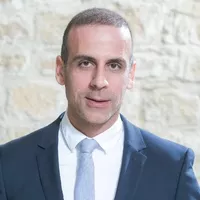- in United States
- within Consumer Protection topic(s)
- in United States
- within Consumer Protection, Transport and Insurance topic(s)
Respect for human rights amounts to one of the fundamental pillars upon which cultures and civilizations evolve, developed over years of education and systematic cultivation. It is not something that is inherited or passed down; it is something that is cultivated, through education and through the conscious efforts of institutions and individuals. Therefore, as adults, responsible citizens, parents and – above all – as politicians who take up key positions thanks to the trust of the citizens, we have a responsibility to strengthen this principle. We must do so in a way that prevents conflict, does not raise doubts about the application of rights and, above all, leaves no room for questioning the ability to manage sensitive issues such as children's rights. The occasion for this statement arises from the recent decision by the Ministry of Education to exclude children attending private schools from the subsidy for purchasing computers. I wonder: What research has been conducted to substantiate the assumption that these children do not need subsidies? On what basis was it determined that all their parents are financially affluent, simply because they chose to send their children to private schools?
From personal experience as a member of the board of a private school, I have witnessed parents making significant financial sacrifices to ensure their children have better educational prospects. Not all of them are financially well-off. There are families who forgo basic comforts to provide this opportunity for their children. Is it fair to exclude them from any form of support? Shouldn't each case be assessed individually?
Moreover, I question whether the authorities have considered the social consequences of their decision. This distinction, which essentially labels private school children as "privileged" indiscriminately, reinforces inequalities. And what message are you sending to these children? That they belong to a different category, regardless of their actual needs? This distinction can only create problems.
The Commissioner for the Rights of the Child correctly pointed out that this approach violates children's rights. However, once again, we see that her decisions and proposals are being sidelined, as there is no institutional regulation to compel the state to take them seriously.
Another equally serious issue concerns the enrolment of children in the first grade of primary school. Although the age limit for enrolment has been increased via law, exceptions still exist for children of parents serving either in the diplomatic corps or the Hellenic Force in Cyprus (ELDYK). These children are enrolled according to the legislation of their country of origin, with the justification that they will eventually return and need to reintegrate into their educational system.
But what about the children of parents who are in Cyprus for a specific period due to work contracts and hold residency permits? These children are denied the right to adapt to their future education. When they return to their country, they will be placed in classrooms with younger children because Cyprus effectively "punishes" these children for circumstances beyond their control!
Furthermore, there is a category of children whom educators and experts consider gifted or particularly mature for their age. Nevertheless, in Cyprus, these children are placed in pre-primary school without any intention to consider their special circumstances. The proposed solution? Advanced classes within pre-primary. There is no initiative for evaluating these children or introducing a regulatory framework to ensure their needs are addressed and properly supported.
Recently, in an effort to revive this issue, a letter was sent to the Ministry of Education requesting a statement. Despite repeated follow-ups through letters and phone calls, the official response was disappointing. The ministry merely stated that "this is the current legislation" and closed the case. As for the gifted children, a ministry official's statement was particularly telling: "All parents consider their children gifted."
I wonder, where is the ministry's commitment to a thorough investigation of these issues? Where is the responsibility to at least consider the proposals of the Commissioner for the Rights of the Child?
I urge you, the responsible authorities, to publicly address these two issues.
The content of this article is intended to provide a general guide to the subject matter. Specialist advice should be sought about your specific circumstances.
[View Source]
